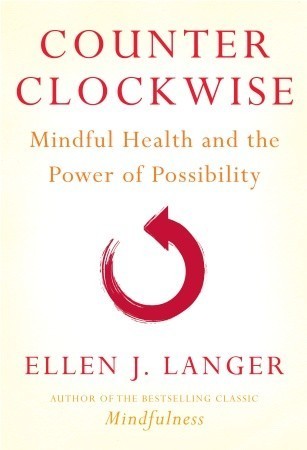What do you think?
Rate this book


240 pages, Hardcover
First published January 1, 2009

"If we spill a drop of red sauce on a white shirt, we easily will notice it. If the shirt were a busy plaid, we might not.
Most of us are so disengaged from ourselves—stressed, depressed, overworked, and so on—that we look at ourselves and see plaid shirts. But that can change if we take note of what’s new and different about the world and ourselves. When we notice new things, we become mindful, and mindfulness begets more mindfulness. The more mindful we become, the more we see ourselves as white shirts and the easier it is to find the red spot and remove it..."
"The most dramatic example of language acting as placebo can be found in the counterclockwise study. The study used language to prime the participants, asking the elderly men at the retreat to speak about the past in the present tense.
With language placing the experimental groups’ minds in a healthier place, their bodies followed suit..."